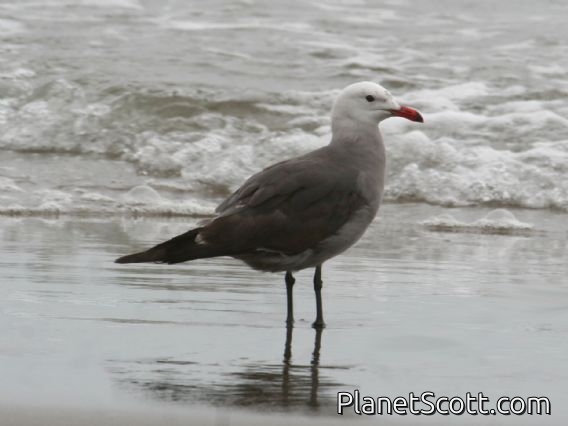Heermann's Gull (Larus heermanni)

Heermann's Gull (Larus heermanni) Breeding

Heermann's Gull (Larus heermanni) 1st Summer


×



Heermann's Gull (Larus heermanni) Breeding

Heermann's Gull (Larus heermanni) 1st Summer
About Heermann's Gull (Larus heermanni)
- Kingdom: Animals
- Phylum: Chordates
- Class: Birds
- Order: Shorebirds and Allies
- Family: Gulls, Terns, and Skimmers
Heermann's gull is a gull resident in the United States, Mexico and extreme southwestern British Columbia, nearly all nesting on Isla Rasa in the Gulf of California. They are usually found near shores or well out to sea, very rarely inland. The species is named after Adolphus Lewis Heermann, nineteenth-century explorer and naturalist.
Source: Wikipedia
Visits
-
×
-
2005-12-05
Sutro Heights--Baths / Land's End, United States of America× -
×
-
2007-04-11
San Diego - La Jolla, United States of America× -
2007-06-20
Fort Funston, United States of America×× -
2008-01-04
Puerto Vallarta, Mexico× -
2008-01-21
Agua Vista Park, United States of America× -
2008-02-20
Isla Espiritu Santo, Mexico× -
2012-08-25
Pescadero Marsh, United States of America× -
2012-09-19
Sutro Heights--Baths / Land's End, United States of America× -
2012-09-19
Sutro Heights--Baths / Land's End, United States of America× -
2013-08-18
Farallones Marine Sanctuary, United States of America× -
2014-07-12
Ano Nuevo State Park, United States of America× -
2014-08-23
MacKerricher SP, United States of America× -
2014-09-01
Pigeon Pt., United States of America× -
×
-
×
-
×
-
×
-
×
-
×
-
×
-
×
-
×
-
×
-
×
-
×
-
×
-
2023-10-21
Farallones Marine Sanctuary, United States of America×










